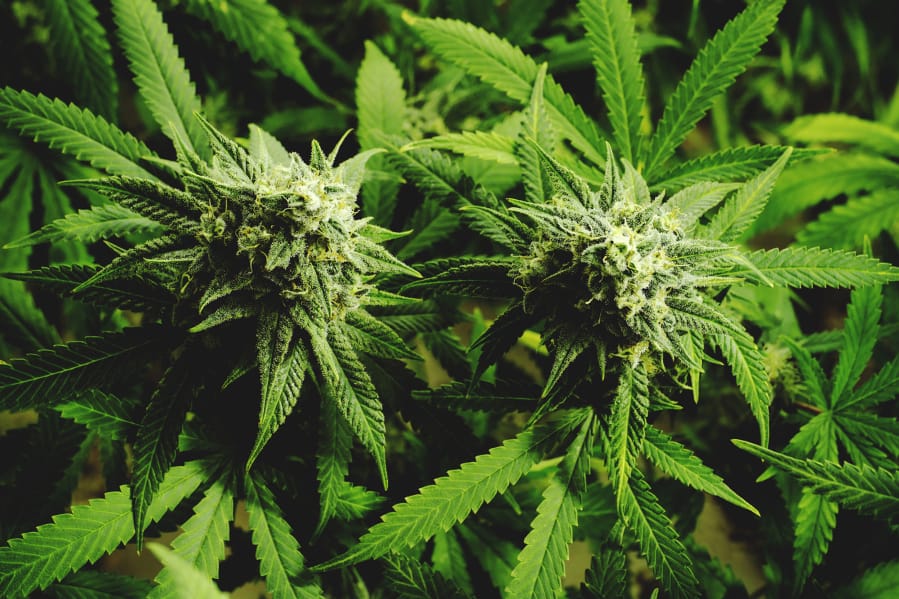Matt Miller’s family has farmed pot in Oregon since well before it became legal.
But since the market flooded after recreational use was approved by state voters in 2014, prices have plummeted, putting strain on the operation he runs with his wife, Rhea.
Oregon’s lush climate and weed-tolerant culture have long resulted in large and potent harvests. Seeking to fold black market growers into its budding legal industry, the state has distributed licenses liberally, leaving Oregon saddled with an enormous surplus of legal cannabis — more than its small population of 4 million would ever be able to smoke.
Now, Oregon lawmakers are hoping to tackle the problem, with two bills signed into law in the past week; one aimed at curbing excess production and the other seeking to establish new markets to funnel excess weed into.
Senate Bill 218 gives the Oregon Liquor Control Commission more power over issuing new licenses based on an assessment of supply and demand conditions. SB 582 aims to lay the groundwork to eventually divert the state’s over-saturated marijuana market by giving the governor the green light to enter into agreements with other states for cannabis imports and exports.
It is illegal to transport cannabis to other states, and so the export legislation hinges on action in Washington, D.C., in the form of a change in federal law or guidance issued by the U.S. Department of Justice allowing or tolerating interstate transfers.
The Trump administration has been unfriendly to legal weed. Last year, then-Attorney General Jeff Sessions rescinded an Obama-era federal policy called the Cole memorandum, which allowed states to legalize pot without the threat of a federal crackdown. Sessions’ replacement, William Barr, confirmed to U.S. senators in January that he would not push for this crackdown (which never materialized under Sessions). But his hands-off approach to legal weed does not by any means signal that the administration would allow trade between states.
Federal action
Adam J. Smith, founder and director of the Craft Cannabis Alliance based in Oregon — which helped push for the export bill — is optimistic that a change at the federal level is around the corner, particularly if a Democrat defeated Trump in 2020.
It doesn’t make sense, he said, that states legalizing weed are forced to create a self-contained industry.
“You have people using water in the desert in Nevada to grow mediocre cannabis, or in Florida, where they have to dehumidify giant spaces, consuming twice the energy,” Smith said. “Oregon wouldn’t have an oversupply problem if we could access legal markets like these.”
Recreational marijuana is legal in 11 states; medical marijuana is legal in 33.
Smith and other advocates are exploring the idea of pushing a similar bill — giving officials authority to enter into marijuana trade agreements with other states — through the legislature in California. The end goal is to move cannabis between states by 2021.
Unlike other states that have legalized recreational marijuana, including California, Washington and Colorado, Oregon did not implement tight restrictions on the number of cannabis licenses.




